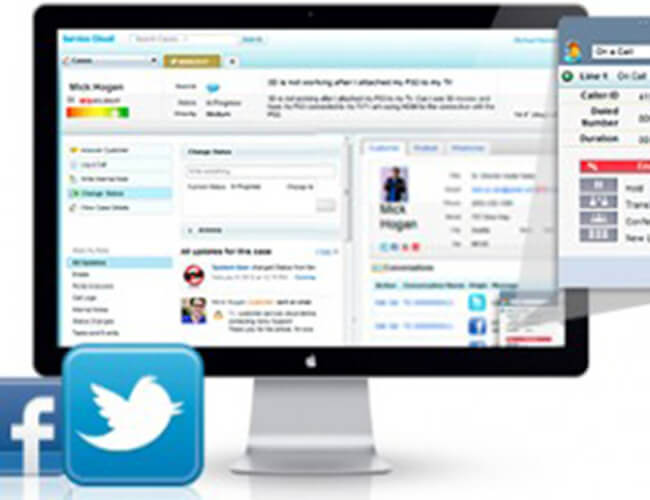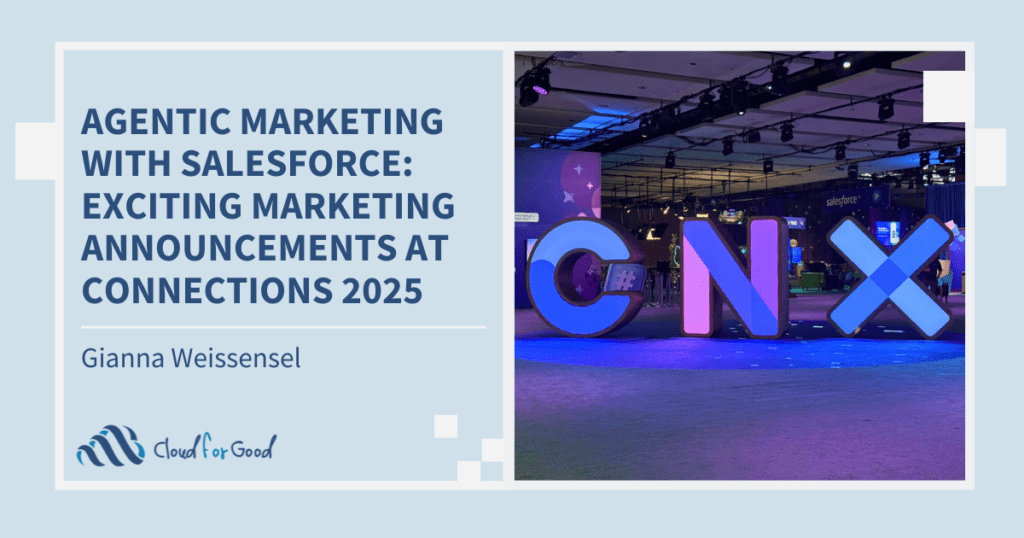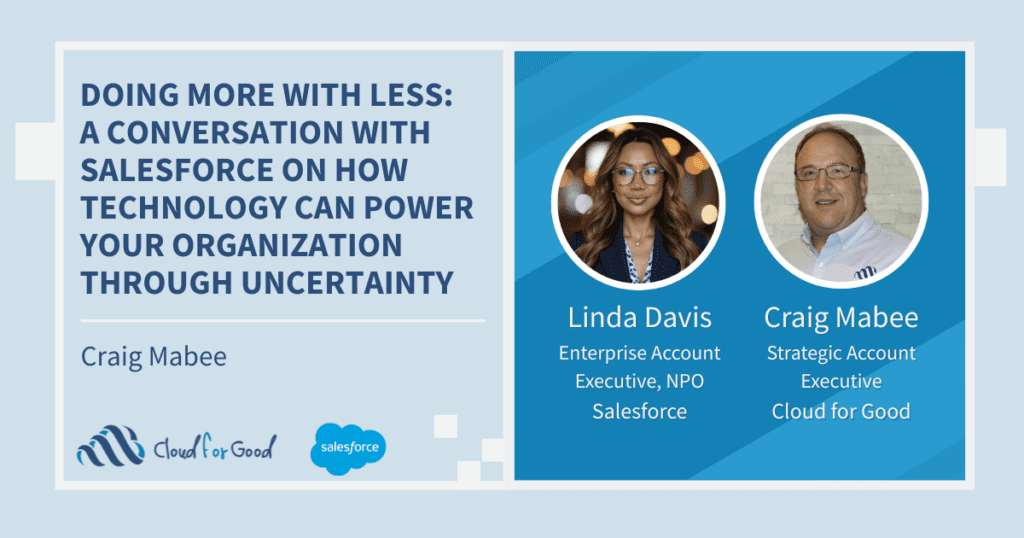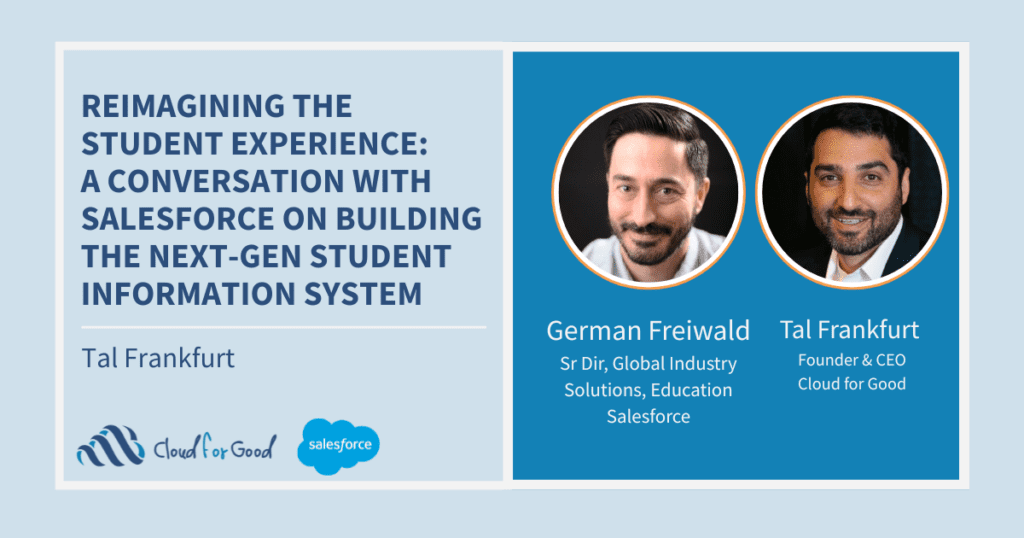It’s a mobile and social world. Your volunteers, members and supporters are online, and it is fundamentally changing how and where constituents look for support, and how they engage with you today.
For organizations of any size, listening to constituents online doesn’t only present the opportunity to uncover and address complaints and issues, but the opportunity to learn, improve, and engage your audience in new ways to strengthen – or build new – relationships over time.
Social Customer Service in the Salesforce Service Cloud
Social Customer Service allows you to respond to customers and constituents via social networks to capture important information as a Case right within Salesforce to respond to and resolve issues quickly.
Through integration with salesforce.com’s Radian6, social posts to your organization through social networks like Facebook and Twitter can be fed into Salesforce where support agents, volunteers or administrators can engage customers and directly respond to them.
But why not just use the social networks themselves to manage these channels?
I get it. Just because you can do it with Salesforce doesn’t necessarily mean you should, does it? When weighing the costs of implementing another business process and communication channel into Salesforce, there are certainly pros and cons to consider.
It isn’t a simple decision for many organizations, especially for non-profits and educational institutions where funding can be extremely tight and very carefully controlled. Admittedly, one of the historical barriers to Social Customer Service within Salesforce has been the need for the Radian6 Social Hub license and managed accounts.
Additionally, beyond the potential incremental costs, there are potential configuration & customization costs – whether measured in time or dollars – as well. What’s more, often managing social media falls outside of the spectrum of a typical Salesforce Administrator, and we need buy-in from marketing and communications teams and bring them into the fold where the strategic decision to manage support requests in Salesforce can significantly impact their world. In these cases, change management is crucial and should be carefully planned to ensure all areas are on board and enthusiastic about the dramatic shift in how you manage support in social interactions.
That said, Social Customer Services enables your team to manage customer service issues and requests from social media in one place alongside those from traditional channels. With a central repository for tracking all your customer support interactions across all channels the measurement, reporting and analytics on constituent experiences becomes far more robust. Similarly, with social activity feeding into Salesforce, you are better able to get a true 360-degree view of your constituents across all areas of your relationship from opportunity and donor history, program participation, complaints and compliments in a way that is tightly integrated with the existing intelligence and knowledge base within your Salesforce instance already.
Moreover, from a process perspective, consider the impact Salesforce may bring to the way in which you deliver support across channels, and how to deliver exceptional customer experiences at every interaction;
- Every support issue is a chance to enhance your relationship with your constituents. Case management in Salesforce lets you make the most of each and every one of these opportunities. Why should case management processes apply only to traditional channels like phone, email, or in-person? Support issues raised via social media may be more public and time-sensitive, but by applying best practice support processes, you’re able to minimize the often frantic reactionary support.
- Social media can be the wild west. One misstep or faux pas and your story can and will be repeated, amplified and potentially blown out of proportion. By managing engagement in an organized fashion, you can apply your communications best practices with templates, approvals, or security controls to ensure a measured response that protects your brand.
- Automating the distribution of cases to get inquiries routed to the right person at the right time to provide your constituents the best possible service.
- Leverage milestones and escalations to enforce service level agreements and ensure no issue goes unaddressed or slips through the cracks.
As a Service Cloud fanatic, it really does sound like nirvana. And up to this point, for many smaller organizations, it was just as hard to reach.
Introducing the Social Customer Service Starter Pack
At Dreamforce this year, beyond the incredible Service Cloud Keynote, Service Cloud enthusiasts were treated to two roadmap sessions detailing the future of the platform. Among a slew of other exciting feature announcements like quick text, community templates and in-app SOS, we were introduced to the Social Customer Service Starter Pack.
Currently available through a pilot program, existing Service Cloud customers can get started with Social Customer Service quickly and easily – without a separate Radian6 contract.
Again, if you have the Service Cloud feature licenses enabled in your org today, you can have the Social Customer Service Starter Pack.
This is a huge win for so many small and medium sized businesses and non-profit organizations that have been hungry for a means to better manage support through social, without having another tool to use and cost to bear. With the starter pack pilot, you can enable up to two social accounts (one Twitter account and one Facebook account, or two Twitter accounts for example), and start forwarding social posts to your organization directly into Salesforce.
Again, it’s an incredible feature for Service Cloud users looking to better listen to, engage with, and proactively deliver service to constituents.
With that being said, given that it is a starter edition product/feature there are limitations you need to consider. Primarily, the pilot does not support the moderation feature found in Social Customer Service. This means that every post sent to the connected social accounts will route to Salesforce as a case. For many organizations, not every tweet or post needs to be a case. The congratulatory posts and mentions from fans and followers don’t necessarily need to be treated with the same vigor as urgent support issues. Using the full suite with moderation enabled, agents can manage which posts get cases and which are ignored. If limited to the Starter Pack, you need to plan for additional triage, or to work around the limitation, it may be useful to consider linking your Salesforce support process to a dedicated support channel, like a support-focused twitter handle. But ultimately, if you do generate too many cases from your social feeds – first and foremost, Congratulations on having such a well-engaged and active audience. And second, the migration path from Starter Pack to a Radian6 is quick and easy, enabling you to add additional social accounts, and yes, the moderation feature as well.
If you are a connected nonprofit, or aim to be one, I’d strongly encourage a close look at the Service Cloud, and the Social Customer Support Starter Pack.





